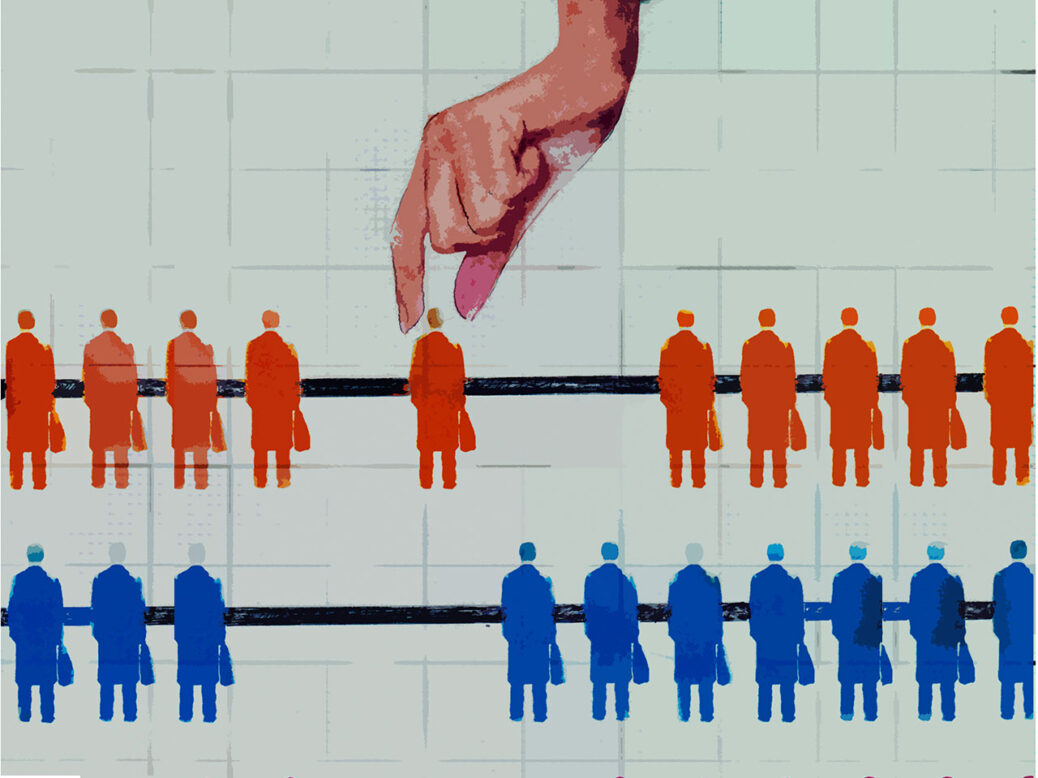
In a recent episode of his podcast, The Rest is Politics, Alastair Campbell described opinion polls as the “junk food” of journalism. He has a point. Both politicians and commentators tend to gorge on them, but come away with little nourishment and are more likely to succumb to intellectual bloating.
The by-elections on 20 July largely supported this. If you’d last checked the polls at Christmas, you’d have been expecting the Tories to lose previously safe seats to both Lib Dems and Labour, which they did. You could have ignored all chatter in between about Conservatives clawing back a couple of points here and there. Equally, the local intensity of dislike for Ulez in Uxbridge is largely disconnected from national, or even London-wide, polls about air pollution.
The attraction of polling to those hooked on politics is clear. Numbers tell an accessible story, and resolve into an easy narrative to spin – who is up, who is down. Like a stock ticker, however, those who watch every movement are often less well informed than those who check in every so often to observe the general trend.
In the modern news and social media cycle, there’s new polling released almost every day. Few observers have the skill or the patience to interrogate them, so instead craft a convenient narrative. A slight shift that may be the result of a change of sample or weighting becomes immediately linked to the last few days of news, to create a story which is then easily countered by the next set of numbers.
Partisan players can take this even further. There is usually a poll to support every perspective, or else one can be conjured up, with leading questions or massaged numbers. Both within parties and in the public sphere, dubious research can be spun to lead a story in one direction or another.
[See also: What does the Ulez court ruling mean for Labour?]
This is especially true when polling moves beyond voting intentions to focus on issues of policy. Public opinion is often complex and contradictory, and polling is often available to confirm any bias. As has been shown recently, polls can show how the public oppose increasing immigration, but then go on to support more immigration in every category when it’s broken down by the types of people who move here. Polls often show a broad support for measures to tackle climate change, then disapproval when individual policies seem to inconvenience people.
The same deficiencies of understanding come with polling’s cousin, the focus group – an increasingly powerful force in Westminster. Here political parties or the media test particular issues with a selected half-dozen ordinary voters. Yet without proper curation, these just become another tool for confirming the inquisitors’ biases. Focus groups are even easier to cherry-pick from than polls – you can listen only to the comments that support your position. Equally they can be skewed by loaded questions, or swayed by one particularly boisterous participant. Evaluating them properly is a skill, and one which is convenient to ignore when you have an axe to grind.
This obsession with polling has a distorting effect on politics. It becomes self-sustaining, as politicians and commentators push an item into popular consciousness, then use the polls to continue to justify their talking about it. It also means a one-dimensional analysis of events and ideas – with popularity becoming the only metric, rather than whether something will work or not. Equally, it seems to deter politicians from making the case for something that fails to meet with approval in the polls.
All of this becomes heightened in election times. Polling in anticipation of the main result becomes the lens through which everything is filtered. This can in turn influence the result, introducing a sense of game theory – some argue Labour’s surge in 2017 was partly because people believed the Tories would initially win convincingly. We already ban early exit polls to combat this, while other jurisdictions go further, enforcing polling silence in the run up to election day. Ontario is considering a two-week polling purdah to boost turnout.
Such action seems illiberal and hard to enforce. The media and the parties should perhaps first try to wean themselves off the daily polling habit. It tends to offer a lot of noise but little info, with time better spent focused on policy outcomes. If polling is junk food, we may be overdue a diet.
[See also: The UK economy is one big tracker mortgage]



